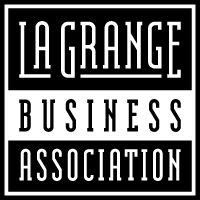Starting January 1, 2025, Illinois employers must comply with new pay transparency requirements under the Illinois Equal Pay Act (IL EPA). These changes are designed to promote fairness in the workplace by ensuring job applicants and employees have access to clear information about wages and benefits. The amendment also aims to reduce wage gaps and improve equitable hiring practices.
What is the Illinois Equal Pay Act?
First enacted in 2003, the IL EPA ensures that employees performing substantially similar work are paid equally, regardless of gender or race. The recent pay transparency amendment builds on this foundation, addressing pay equity challenges by requiring employers to share salary and benefits information in job postings.
Key Provisions of the Pay Transparency Amendment
The amendment mandates that covered employers provide:
- Pay Transparency: Employers with 15 or more employees must include a good-faith pay scale and a general description of benefits in job postings.
- Promotional Opportunity Notifications: Employers must inform current employees of promotional opportunities to ensure equal access.
These requirements apply to roles physically performed in Illinois or reporting to an Illinois-based office or supervisor.
What Must Be Included in Job Postings?
Employers must disclose:
- Pay Scale: The anticipated wage or salary range for the position, reflecting the lowest and highest compensation the employer might reasonably offer.
- Benefits Information: A general description of available benefits, such as health insurance, retirement plans, bonuses, and other incentives.
Employers may include this information directly in the job posting or link to a publicly accessible webpage specifying the details for the advertised role.
Who is Covered by These Requirements?
The pay transparency amendment applies to employers with 15 or more employees, including part-time and out-of-state workers. Temporary roles and positions covered by collective bargaining agreements (CBAs) are also included. However, the amendment does not require employers to post all job openings—it only applies when employers choose to publish specific postings.
Special Scenarios to Consider
- Remote Work: Job postings for remote roles must include pay and benefits information if the role can reasonably be performed in Illinois or reports to an Illinois office or supervisor.
- Internal Postings: Pay transparency applies to internal-only postings shared with current employees.
Variations in Pay: Employers may offer compensation outside the posted range at the time of hire, provided the posting reflected a good-faith estimate.
Recordkeeping and Enforcement
Employers must retain records for at least five years, documenting:
- Job postings
- Pay scales and benefits for each position
- Notifications to employees about promotional opportunities
The Illinois Department of Labor (IDOL) is responsible for enforcement. Employers found in violation may face financial penalties ranging from $250 for a first offense involving inactive postings to $10,000 for repeated violations involving active postings. The IDOL also prohibits retaliation against employees or applicants exercising their rights under the Act.
Benefits of the Amendment
The pay transparency amendment fosters accountability and trust, helping to close wage gaps and ensure equal opportunities for Illinois workers. By requiring upfront disclosure, it empowers applicants and employees to make informed decisions and promotes a culture of fairness and equity.
Learn More
To explore the full details of the Illinois Equal Pay Act and the pay transparency amendment, visit the Illinois Department of Labor’s Pay Transparency page.

